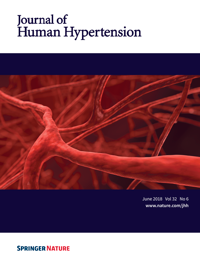Coenzyme Q10 in the treatment of hypertension

Coenzyme Q10 in the treatment of hypertension:
a meta-analysis of the clinical trials
Our objective was to review all published trials of coenzyme Q10 for hypertension, assess overall efficacy and consistency of therapeutic action and side effect incidence. Meta-analysis was performed in 12 clinical trials (362 patients) comprising three randomized controlled trials, one crossover study and eight open label studies. In the randomized controlled trials (n¼120), systolic blood pressure in the treatment group was 167.7 (95% confidence interval, CI: 163.7–171.1) mmHg before, and 151.1 (147.1–155.1) mmHg after treatment, a decrease of 16.6 (12.6–20.6, Po0.001) mmHg, with no significant change in the placebo group. Diastolic blood pressure in the treatment group was 103 (101–105) mmHg before, and 94.8 (92.8–96.8) mmHg after treatment, a decrease of 8.2 (6.2–10.2, Po0.001) mmHg, with no significant change in the placebo group. In the crossover study (n¼18), systolic blood pressure decreased by 11 mmHg and diastolic blood pressure by 8 mmHg (Po0.001) with no significant change with placebo. In the open label studies (n¼214), mean systolic blood pressure was 162 (158.4–165) mmHg before, and 148.6 (145–152.2) mmHg after treatment, a decrease of 13.5 (9.8–17.1, Po0.001) mmHg. Mean diastolic blood pressure was 97.1 (95.2–99.1) mmHg before, and 86.8 (84.9–88.8) mmHg after treatment, a decrease of 10.3 (8.4–12.3, Po0.001) mmHg. We conclude that coenzyme Q10 has the potential in hypertensive patients to lower systolic blood pressure by up to 17 mmHg and diastolic blood pressure by up to 10 mmHg without significant side effects.
Source: Journal of Human Hypertension (2007) 21, 297–306. doi:10.1038/sj.jhh.1002138;


